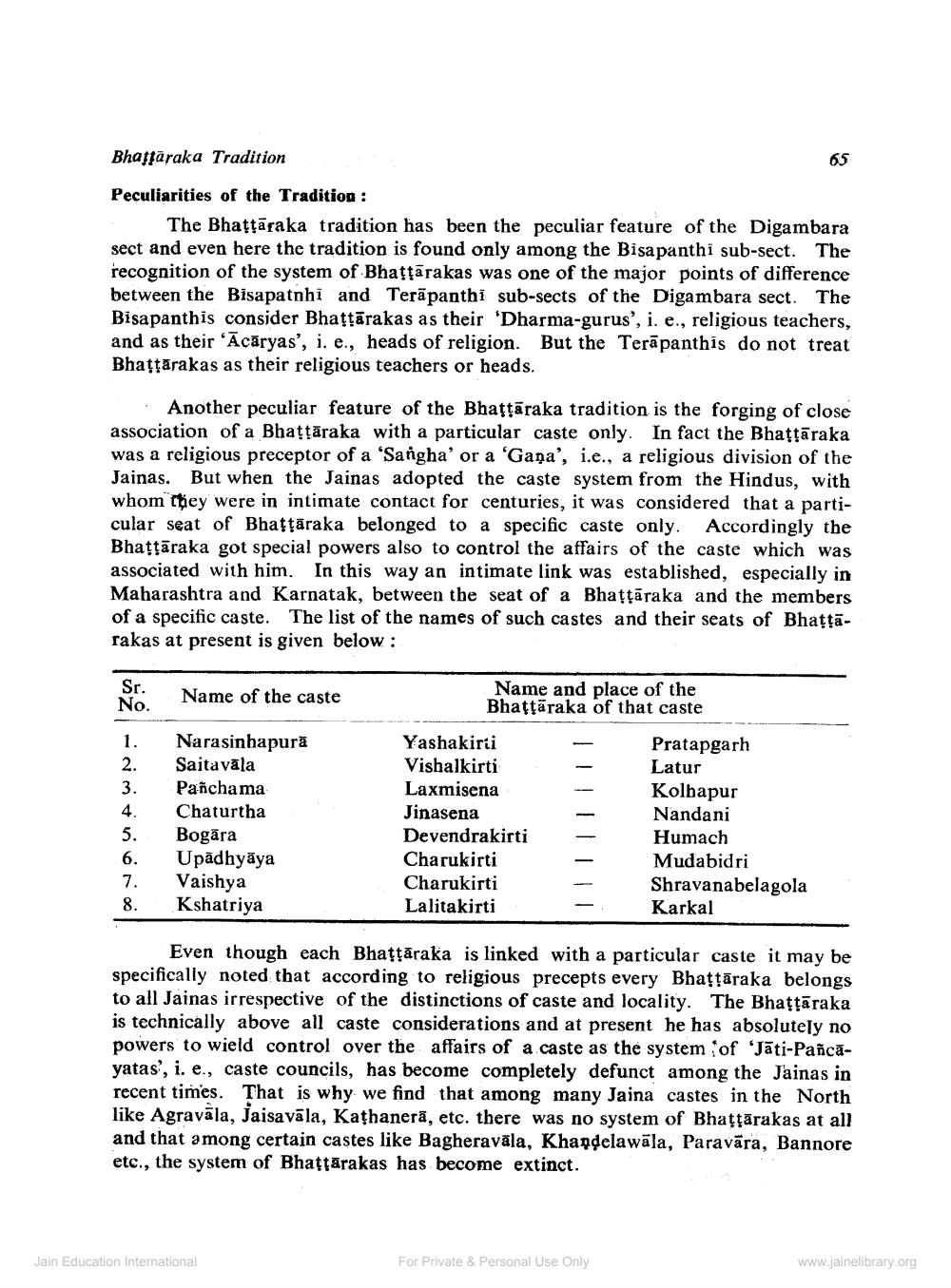________________
Bhajjāraka Tradition
Peculiarities of the Tradition :
The Bhattāraka tradition has been the peculiar feature of the Digambara sect and even here the tradition is found only among the Bisa panthi sub-sect. The recognition of the system of Bhattarakas was one of the major points of difference between the Bisapatnhi and Terāpanthi sub-sects of the Digambara sect. The Bisapanthis consider Bhattārakas as their 'Dharma-gurus', i. e., religious teachers, and as their 'Acāryas', i. e., heads of religion. But the Terāpanthis do not treat Bhattārakas as their religious teachers or heads.
Another peculiar feature of the Bhattāraka tradition is the forging of close association of a Bhattāraka with a particular caste only. In fact the Bhattāraka was a religious preceptor of a 'Sangha' or a 'Gana', i.e., a religious division of the Jainas. But when the Jainas adopted the caste system from the Hindus, with whom they were in intimate contact for centuries, it was considered that a particular seat of Bhattāraka belonged to a specific caste only. Accordingly the Bhattāraka got special powers also to control the affairs of the caste which was associated with him. In this way an intimate link was established, especially in Maharashtra and Karnatak, between the seat of a Bhattāraka and the members of a specific caste. The list of the names of such castes and their seats of Bhattārakas at present is given below :
Name of the caste
Name and place of the Bhattāraka of that caste
No.
Narasinhapurā Saitavāla Panchama Chaturtha Bogara Upadhyāya Vaishya Kshatriya
Yashakirti Vishalkirti Laxmisena Jinasena Devendrakirti Charukirti Charukirti Lalitakirti
Pratapgarh Latur Kolbapur Nandani Humach Mudabidri Shravanabelagola Karkal
8.
Even though each Bhattāraka is linked with a particular caste it may be specifically noted that according to religious precepts every Bhattāraka belongs to all Jainas irrespective of the distinctions of caste and locality. The Bhattāraka is technically above all caste considerations and at present he has absolutely no powers to wield control over the affairs of a caste as the system of 'Jāti-Pancāyatas', i. e., caste councils, has become completely defunct among the Jainas in recent times. That is why we find that among many Jaina castes in the North like Agravāla, Jaisavāla, Kathanerā, etc. there was no system of Bhattārakas at all and that among certain castes like Bagheravāla, Kha delawāla, Paravāra, Bannore etc., the system of Bhattārakas has become extinct.
Jain Education International
For Private & Personal Use Only
www.jainelibrary.org




